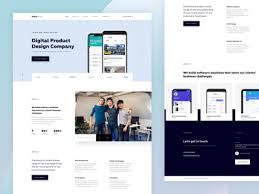Empowering Innovation: The Role of a Mobile Software Development Company in Today’s Digital Landscape
The Role of a Mobile Software Development Company in Today’s Digital World
In the fast-paced digital era we live in, mobile applications have become an integral part of our daily lives. From communication to entertainment, shopping to productivity, mobile apps cater to a wide range of needs and preferences. Behind the scenes of these user-friendly and innovative apps are mobile software development companies that play a crucial role in bringing these ideas to life.
What Does a Mobile Software Development Company Do?
A mobile software development company specializes in creating applications for mobile devices such as smartphones and tablets. These companies employ skilled developers, designers, and project managers who work together to design, develop, test, and deploy mobile applications across various platforms like iOS and Android.
Mobile software development companies offer a range of services including:
- Custom mobile app development tailored to client requirements
- UI/UX design to enhance user experience
- Quality assurance and testing to ensure app functionality
- Integration with backend systems for seamless performance
- App maintenance and updates for continuous improvement
The Impact of Mobile Apps on Businesses
For businesses, having a mobile app has become essential for staying competitive in the market. A well-designed and functional app can enhance customer engagement, increase brand visibility, improve sales conversions, and streamline business operations. This is where the expertise of a mobile software development company comes into play.
By partnering with a reputable mobile software development company, businesses can leverage the latest technologies and trends in app development to create innovative solutions that meet their specific needs. Whether it’s developing an e-commerce app, a gaming platform, or a productivity tool, these companies help businesses reach their target audience effectively through mobile devices.
The Future of Mobile Software Development
As technology continues to evolve rapidly, the future of mobile software development looks promising. With advancements in artificial intelligence, augmented reality, Internet of Things (IoT), and other emerging technologies, mobile apps are expected to become even more sophisticated and versatile.
Mobile software development companies will need to adapt to these changes by expanding their skill sets, staying updated on industry trends, and embracing innovation. By doing so, they can continue to deliver cutting-edge solutions that meet the evolving demands of users and businesses alike.
In conclusion,
A mobile software development company plays a vital role in shaping the digital landscape by creating intuitive and powerful mobile applications that enrich our lives. Their expertise and dedication contribute significantly to the success of businesses looking to make an impact in the ever-growing world of mobile technology.
9 Essential FAQs About Partnering with a Mobile Software Development Company
- What services does a mobile software development company offer?
- How can a mobile software development company help my business?
- What platforms do mobile software development companies develop for?
- What is the typical process of working with a mobile software development company?
- How long does it take to develop a mobile app with a software development company?
- What factors determine the cost of developing a mobile app with a software development company?
- Can a mobile software development company assist with app maintenance and updates post-launch?
- Do mobile software development companies provide UI/UX design services for apps?
- How can I choose the right mobile software development company for my project?
What services does a mobile software development company offer?
A mobile software development company offers a range of services tailored to meet the diverse needs of clients seeking to develop mobile applications. These services typically include custom mobile app development, UI/UX design, quality assurance and testing, integration with backend systems, and ongoing maintenance and updates. By leveraging their expertise in mobile technologies and industry best practices, these companies help businesses bring their app ideas to life, ensuring a seamless user experience and optimal performance across different platforms like iOS and Android.
How can a mobile software development company help my business?
A mobile software development company can greatly benefit your business by providing tailored solutions to meet your specific needs and goals. These companies have the expertise to design and develop custom mobile applications that enhance customer engagement, streamline business processes, increase brand visibility, and drive revenue growth. By leveraging the latest technologies and industry best practices, a mobile software development company can create innovative apps that set your business apart from competitors and resonate with your target audience. Additionally, these companies offer ongoing support and maintenance services to ensure that your mobile app remains up-to-date and optimized for performance, ultimately helping your business stay competitive in today’s digital landscape.
What platforms do mobile software development companies develop for?
Mobile software development companies typically develop mobile applications for a variety of platforms, with the two primary platforms being iOS and Android. These companies have the expertise to create apps that are compatible with both operating systems, ensuring a broader reach to users across different devices. In addition to iOS and Android, mobile software development companies may also develop applications for other platforms such as Windows Mobile and cross-platform frameworks like React Native or Flutter. By offering multi-platform development capabilities, these companies can cater to a wider audience and provide seamless user experiences across various devices and operating systems.
What is the typical process of working with a mobile software development company?
When engaging with a mobile software development company, the typical process involves several key steps. Initially, the client discusses their app idea and requirements with the company’s team. This is followed by a phase of planning and conceptualization, where the project scope, timeline, and budget are defined. The development team then proceeds to design the app’s user interface and experience. Once the design is approved, developers begin coding and building the app according to the agreed specifications. Throughout the process, regular communication and feedback loops ensure alignment with the client’s vision. After thorough testing and quality assurance checks, the finalized app is deployed to the app stores. Post-launch support and maintenance services are often provided to address any issues or implement updates as needed.
How long does it take to develop a mobile app with a software development company?
The timeline for developing a mobile app with a software development company can vary depending on various factors such as the complexity of the app, features required, design intricacies, integration needs, testing phases, and project scope. Typically, a simple mobile app with basic features may take a few weeks to a couple of months to develop, while more complex apps with advanced functionalities could take several months to a year or more. It’s essential for the software development company to conduct a thorough analysis of the project requirements and provide a realistic timeline based on the specific needs and goals of the client to ensure a successful and timely delivery of the mobile app.
What factors determine the cost of developing a mobile app with a software development company?
The cost of developing a mobile app with a software development company is influenced by several key factors. Firstly, the complexity and scope of the app play a significant role in determining the overall cost. Features like user authentication, data storage, integration with external systems, and advanced functionalities can increase development expenses. Additionally, the platform(s) on which the app will be deployed (such as iOS, Android, or both) can impact costs due to differences in development requirements. Moreover, factors like design complexity, third-party integrations, ongoing maintenance needs, and project timeline can also affect the overall cost of mobile app development with a software development company.
Can a mobile software development company assist with app maintenance and updates post-launch?
Yes, a reputable mobile software development company can indeed assist with app maintenance and updates post-launch. Once an app is launched, it requires regular maintenance to ensure optimal performance, security, and compatibility with new devices and operating system updates. A mobile software development company can provide ongoing support by fixing bugs, adding new features, enhancing user experience, and addressing any issues that may arise. Their expertise in app development allows them to efficiently manage updates and maintenance tasks, ensuring that the app remains functional and up-to-date for users.
Do mobile software development companies provide UI/UX design services for apps?
Yes, mobile software development companies often provide UI/UX design services for apps. User Interface (UI) and User Experience (UX) design are critical components of creating a successful mobile application. These companies employ skilled designers who specialize in creating visually appealing interfaces and intuitive user experiences that enhance usability and engagement. By offering UI/UX design services, mobile software development companies ensure that the apps they develop not only function seamlessly but also provide a satisfying and enjoyable experience for the end users.
How can I choose the right mobile software development company for my project?
When selecting the ideal mobile software development company for your project, it is essential to consider several key factors. Begin by assessing the company’s portfolio to gauge their expertise and experience in developing mobile applications similar to your project requirements. Look for client testimonials and reviews to understand their reputation and reliability. Ensure that the company has a proficient team of developers, designers, and project managers who can effectively communicate and collaborate with you throughout the development process. Additionally, consider their approach to customization, quality assurance practices, post-launch support, and adherence to deadlines. By conducting thorough research and asking pertinent questions, you can confidently choose a mobile software development company that aligns with your project goals and vision.





